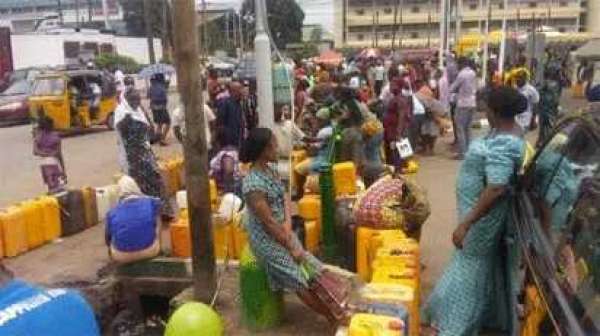Dual Purpose Kerosene (DPK), known as kerosene, hit an alltime high price of N600 per litre at the weekend, worsening the pains of over 30 million households who depend on the product for cooking. In its place, millions of poor Nigerians who use it for their stoves, lanterns, and other purposes, are now seeking alternatives to the very important and most commonly used petroleum product, IgbereTV reports

They have now resorted to the use of charcoal, firewood and polythene bags to make fire to cook for their homes. More fortunate Nigerians use gas cookers, even though the price of gas has also been on the rise. The scarcity hit major cities across the country, with most retail outlets in Abuja , Lagos, Ogun, Oyo, Osun, Enugu, Akwa Ibom, Kano, Kaduna and Abia states going out of stock.
The Liquefied Petroleum Gas (LPG), known as cooking gas, also remained high at the weekend selling at N320 per kilogram. A survey by the OTL, organisers of Nigeria ’s biggest downstream seminar and exhibition, showed that over 30 million Nigerian households use kerosene for cooking and for light as well as fuel for local lanterns.
The scarcity of the product, checks by New Telegraph revealed at the weekend, worsened with the product selling between N200 and N600 per litre nationwide, depending on proximity of the area to Lagos, where the loading depots for the product are situated.
DPK has been deregulated and majority of marketers, who hitherto reduced importation of the product, this newspaper gathered , have now halted importation due to difficulty in accessing foreign exchange. “ The shutdown of refineries that produce DPK through which the market is augmented , is another major problem, ” a marketer told New Telegraph.
“The Pipelines and Products Marketing Company (PPMC ) is now the major importer of the product and except the majors, most of the independent marketers, if not all, depend on loading from PPMC ’s depots. And this explains reasons for the scarcity,” he added.
The price of cooking gas has also skyrocketed, making it unaffordable to some middle income earners, some of who have reverted to kerosene as a cheaper source of energy. “This has also increased the pressure on kerosene and contributed to its scarcity , because it contributes to the high demand for the scarce product with limited supply, ” the marketer said.






